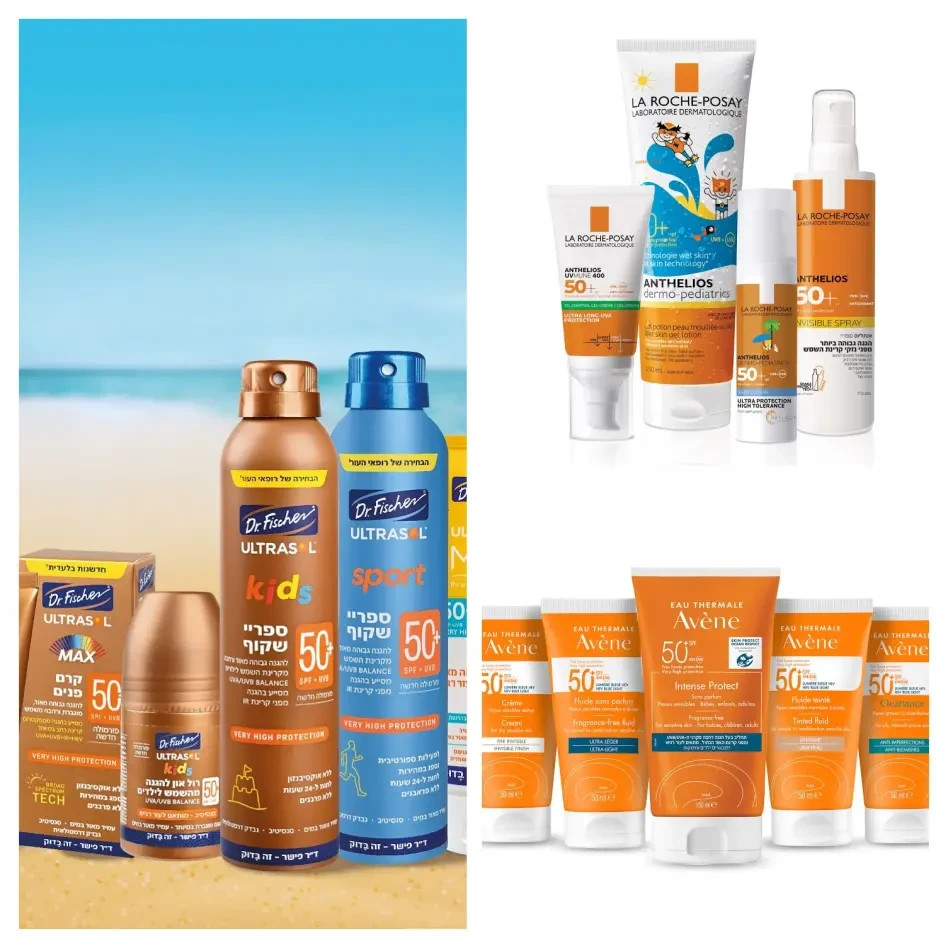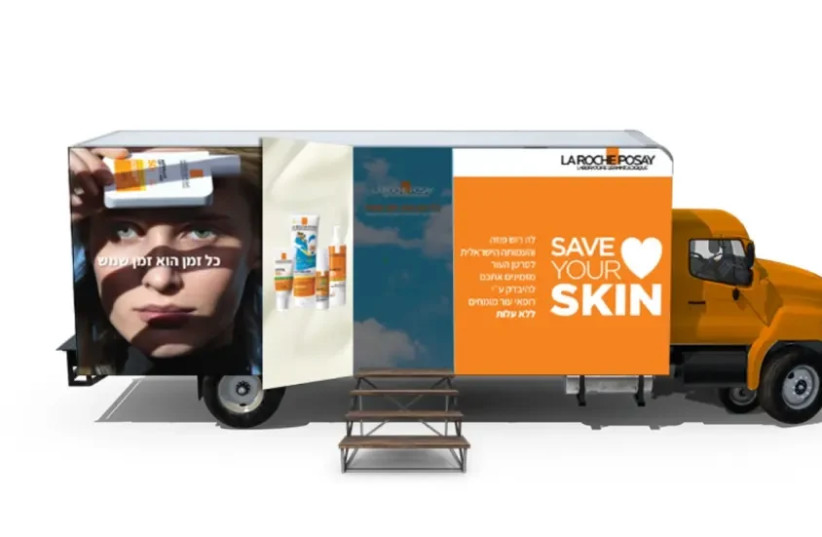Summer 2024 is approaching, and with it, the favorite family pastime of beach and pool outings. Often, the question arises: how to choose a sunscreen product - spray or lotion? The answer is simple: whatever feels pleasant. The most important thing is to use it daily and not to leave the house unprotected, especially when directly exposed to the sun at the beach or pool. Each consumer has different preferences and needs—based on age, lifestyle, activities, skin type, sensitivities, and more. Therefore, it is crucial to select a sunscreen tailored to these factors. The variety is extensive, from sprays and lightweight lotions to sticks, roll-ons, gels, and more, so everyone can choose the product that feels most comfortable and suits their needs.
"Sun damage accumulates slowly over the years," explains Dr. Lehavit Akerman, a dermatologust. "Initially, the body can repair and prevent sun damage, but over the years, the skin's ability to repair diminishes, leading to signs of sun damage such as skin cancers, spots, wrinkles, and general changes in skin tone. About 30% of the skin's defense capabilities are used during childhood."
Dr. Akerman adds, "Harmful radiation is divided into two types: UVA and UVB. UVB, once considered the only harmful radiation, causes tanning, burns, and skin cancer, and protection from it is indicated by the SPF level. UVA causes DNA changes, premature aging, and sun sensitivity. The recommendation is to apply sunscreen daily, even on days without direct sunlight or even on cloudy or rainy days. Sunscreen helps protect the skin from sun rays that still penetrate through clouds or are exposed through windows and even screens."

Beware of Blue Light
"Over the last decade, research shows that these are not the only light rays people need protection from. Blue light emitted by the sun and digital devices can also damage the skin. Blue light is part of the visible light spectrum that the human eye can detect, also known as High Energy Visible Light (HEV). Its wavelength ranges from 380-450 nanometers, making it one of the highest energy wavelengths. The primary source of blue light we are exposed to is the sun, but we also receive blue light radiation from digital screens—computers, smartphones, tablets, televisions, and certain types of indoor lighting. Blue light emitted by the sun during an hour and a half of summer exposure is equivalent to two weeks (1000 hours) of constant screen exposure. AVENE's sun protection products contain TriAsorB, the world's first filter offering optimal protection against UVB, UVA, and HEV blue light up to 420 nanometers, which cause pigmentation and skin aging." Additionally, AVENE products were the first in the country to receive the "Sun Shield" certification from the Israeli Skin Cancer Association, which promotes awareness, education, and proper sun protection.
Everyone Needs Their Own Protection
Today, pharmacy shelves are flooded with countless types of sunscreens, but not all are highly effective. When choosing a sunscreen, it is important to examine the SPF index (once a day) indicating how long the protection offered is against UVB rays and to ensure the cream also provides protection against UVA rays.
Dr. Fischer emphasizes that sun radiation is responsible for about 90% of non-hereditary early skin aging signs and that about 70% of sun damage is caused by daily exposure throughout all seasons, not just during leisure time at the beach, pool, or hiking.
- For optimal sun protection, apply a sufficient amount of sunscreen to create a generous layer for uniform and effective coverage.
- Particular attention should be paid to areas most exposed to the sun, such as the face, neck, chest, arms, and legs.
- For illustration, to achieve good coverage, use about 7 teaspoons of sunscreen (face and neck - 1 teaspoon, hands - 1 teaspoon each, back and shoulders - 1 teaspoon, chest and abdomen - 1 teaspoon, legs - 1 teaspoon each).
- Sunscreen should be applied about 15-30 minutes before sun exposure, uniformly, in a sufficient layer for complete coverage.
- It is also very important to reapply every two hours during exposure to ensure effective protection. In cases of sweating, swimming, and towel drying, it is recommended to reapply.
Don't Forget to Get Checked
The Israeli Skin Cancer Association, in collaboration with La Roche-Posay, will conduct free skin checks for the public by specialist doctors to raise awareness and encourage early detection of skin cancer. The checks will be conducted during June, Skin Cancer Awareness Month, in a specially built mobile clinic that will travel to strategic locations across the country: Tel Aviv, Kiryat, Beersheba, Carmiel, and Eilat.
The mobile clinic will be stationed on June 4-6 at Tel Aviv Port, June 16-17 at Big Carmiel, June 18-19 at Big Kiryat, June 23-24 at Big Beersheba, and June 30-July 2 at the Eilat beach promenade. The clinic will have two treatment rooms where specialist dermatologists will examine moles and suspicious spots from 10:00 AM to 6:00 PM.



